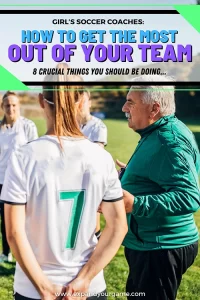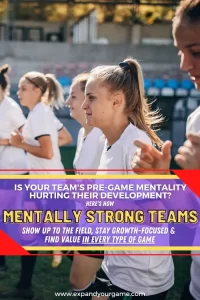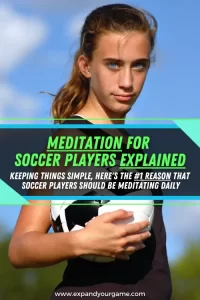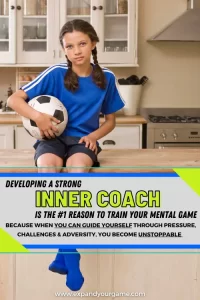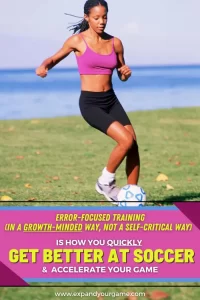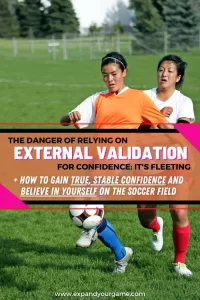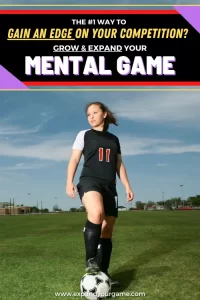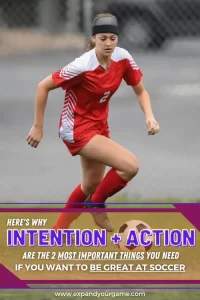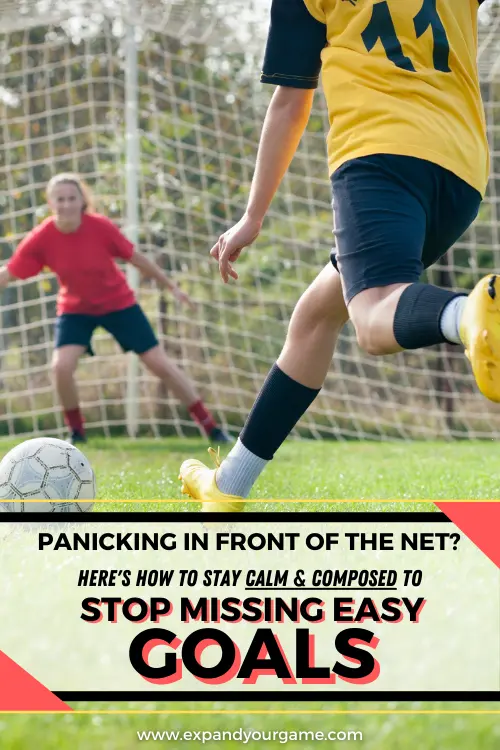
The ball gets shanked wide or over the top of the net, or knocked directly at the goalkeeper. And then the negative self-talk sets in, the obsessing over the missed opportunity, the replaying of the mistake, and you feel the embarrassment of being right in front of the goal and unable to convert.
So, I think it’s time we figure out how to stay calm & composed to stop missing easy goals in soccer. What do you think?
This Post Contains:
Missing easy goals: Why does it happen?
Simply put, you have to put in the time and do the work if you want to get better at striking the ball and scoring goals. Not only will you be more technically prepared to execute better, it’ll also increase your confidence. When you relentlessly practice a skill over and over and over again, you will gain faith in your ability to perform that skill and will have an easier time transferring it to a live game situation than if you hadn’t practiced it over and over.
Keep calm and stay composed
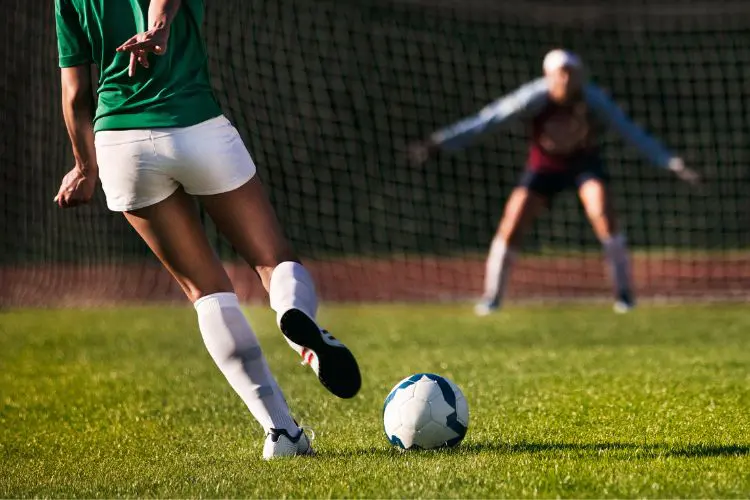
Whether you get nervous and panic, or you get prematurely excited about scoring, in order to stop missing easy goals in soccer you have to work on not getting mentally distracted by the situation and keeping yourself focused until AFTER you have completed the task at hand.
Staying focused under pressure
Icy cold finish
Ice-cold finish from Kingsley Coman to bring @FCBayernUS level ❄️ pic.twitter.com/eo0nm85O5b
— FOX Soccer (@FOXSoccer) June 6, 2020
Grow your confidence through preparedness.
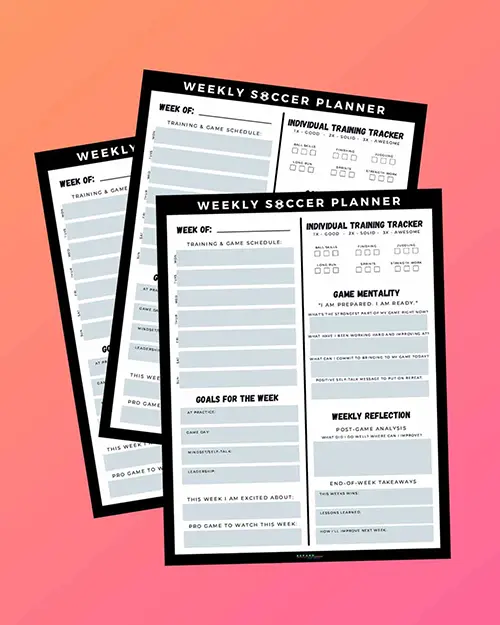
Subscribe to our email list to
Get your FREE Weekly Soccer Planner!
We respect your privacy. Unsubscribe anytime.
Here's how to stop missing easy goals in soccer
{Related read: How a habit of positive self-talk can ELEVATE your soccer game}
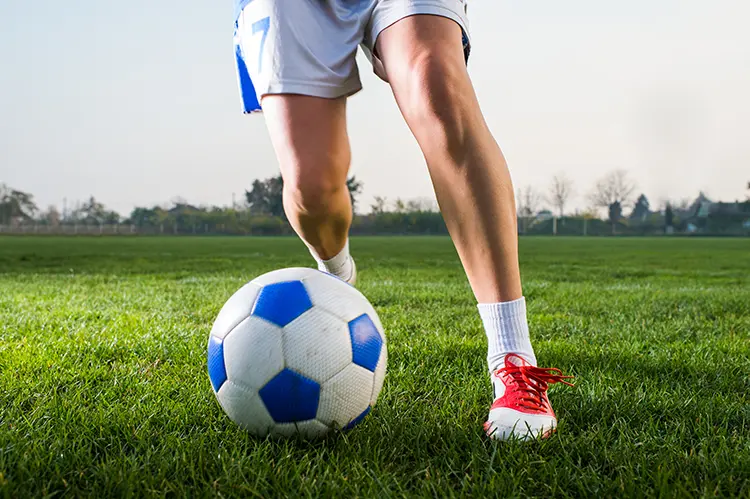
Self-talk to help you stop missing easy goals in soccer
Here are several ways to help direct your attention onto things that are good and useful in the moment if you want to stop missing easy goals in soccer:
Placement in the goal
Body positioning and ball contact
Upgrading the shot
Focus to finish
Now missing an easy goal is never fun, but here’s the even bigger problem. It’s never fun to miss a shot, but now you are also you are completely in your head about it and unable to focus on the game in front of you AFTER the missed opportunity. When you focus your attention onto mistakes, you are no longer in the present moment. And ironically (and unfortunately), not being fully present mentally is actually what leads to ADDITIONAL MISTAKES.

So, sit down right now and come up with your own personal set of ‘instructions’ for what you will do the next time you find yourself in a seemingly easy goal scoring situation – AND THEN GO OUT THERE AND GET THAT NEXT BANGER. You got this.
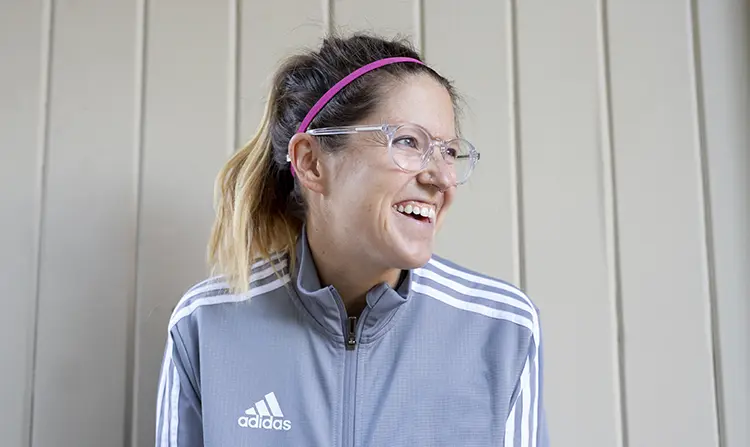
Hi everyone! I’m Jenn and I create content to help female soccer players and coaches maximize individual and team potential by developing healthy mindset skills. Join other subscribers and sign up for the newsletter for all my best tips and advice!
We respect your privacy. Unsubscribe anytime.

